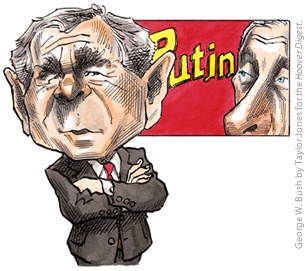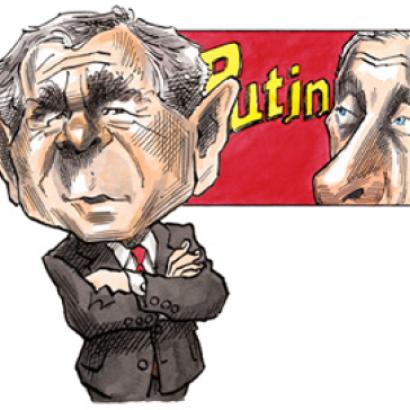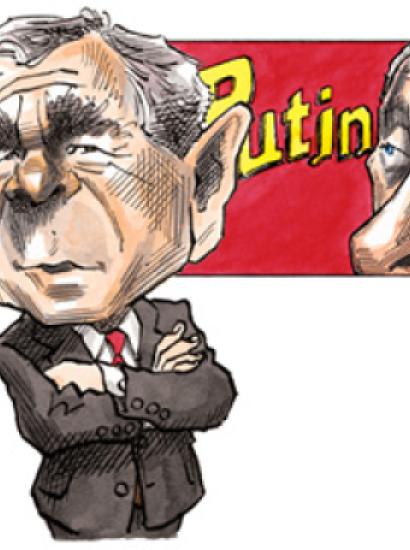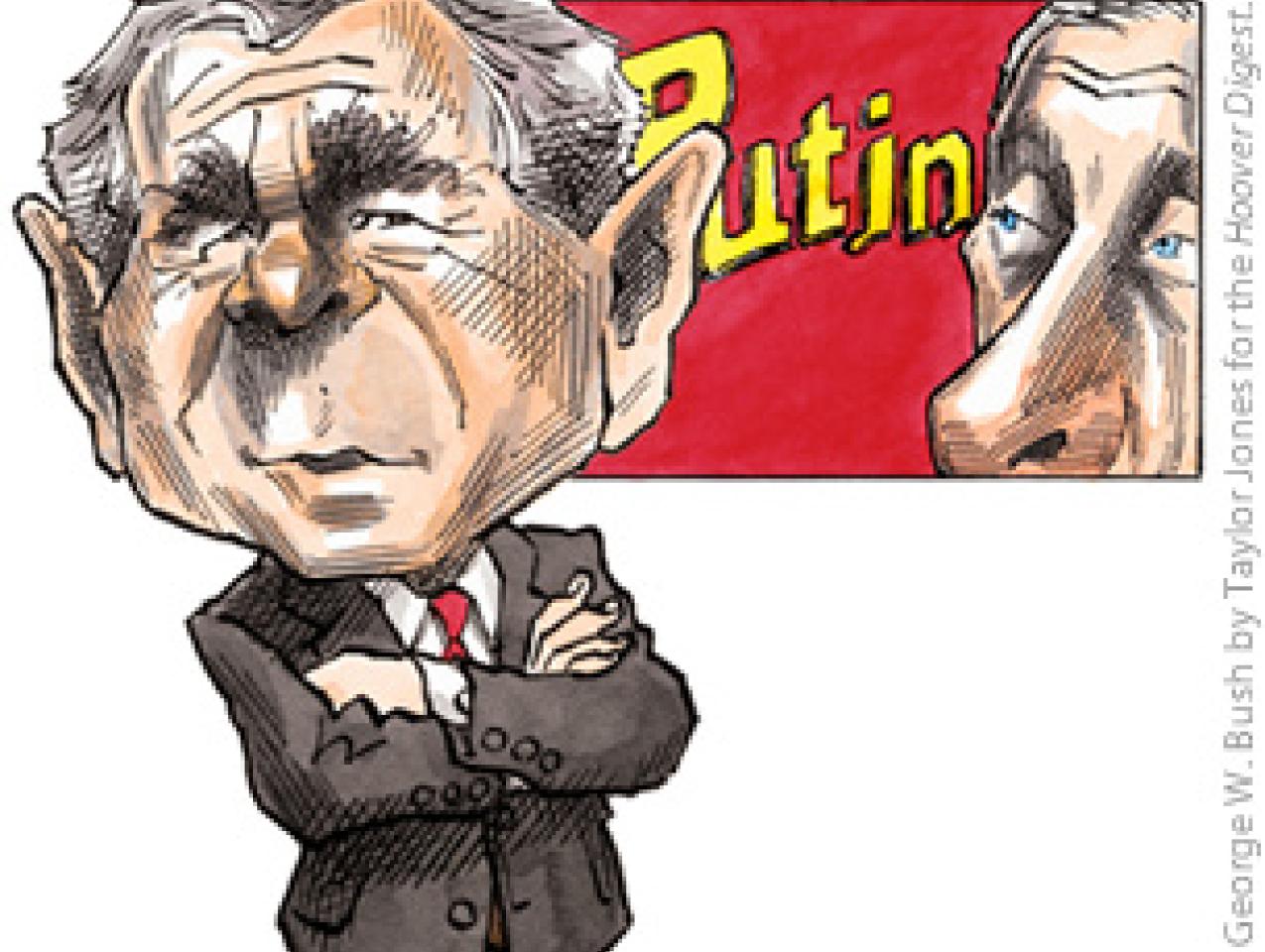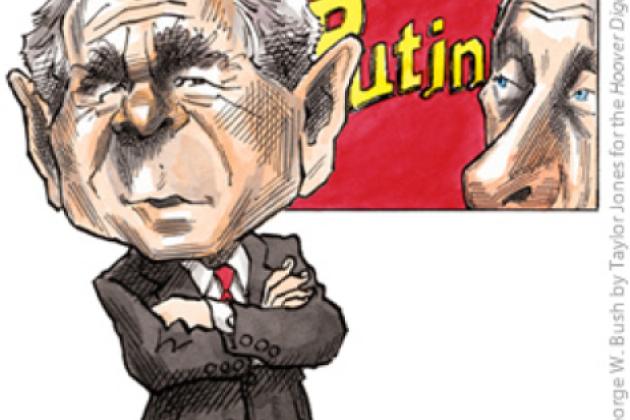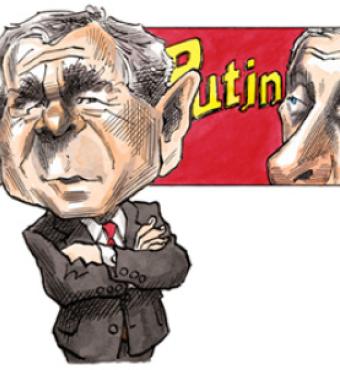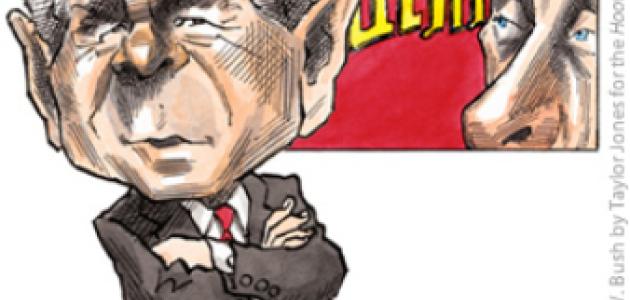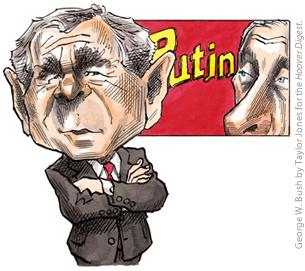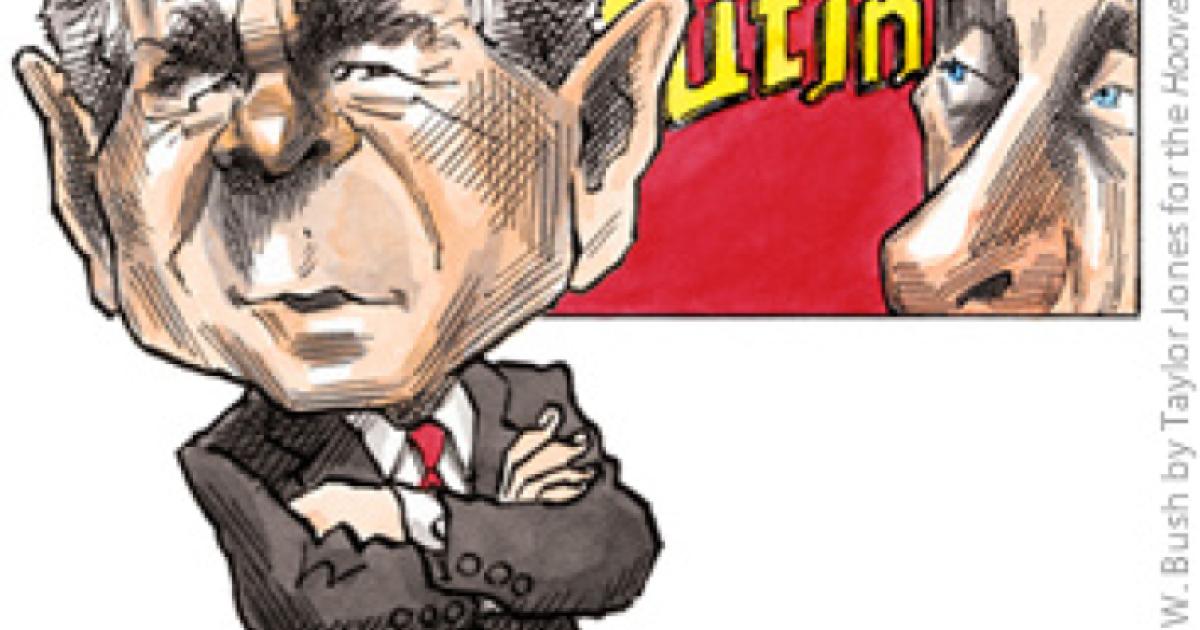- International Affairs
- US Foreign Policy
- The Presidency
- Politics, Institutions, and Public Opinion
If Vladimir Putin were to be asked whether he has been strengthening the Russian state during the almost five years of his presidency, he would surely reply in the affirmative. And if he felt it necessary to buttress his response, he might mention his oft-cited promise to establish “the dictatorship of the law” in Russia.
But has Putin in fact been engaging in state-building and strengthening the Russian state? If by the term state-building, one means authoritarian state-building, then the answer would be maybe yes, but also maybe no. On the other hand, if one is speaking of democratic state-building then the answer must be unequivocally no.
State-building refers to the processes of strengthening the relative power of the state vis-à-vis society and other non-state actors. Max Weber long ago defined the state as “a human community that (successfully) claims the monopoly of the legitimate use of physical force within a given territory.” In this sense, and perhaps in this sense alone, Putin could be said to have been a successful state-builder. He has demonstrably strengthened the relative power of the state vis-à-vis society and other non-state actors (for example, certain leading oligarchs).
Putin has built upon the super-presidentialism embodied in the Yeltsin Constitution of 1993 and has significantly ratcheted up the power of the so-called siloviki (power ministries), especially of the secret police, the FSB. One well-known Russian sociologist, Olga Kryshtanovskaya, recently calculated that the siloviki make up approximately 25 percent of Russia’s ruling elite and 58 percent of Putin’s close entourage.
A major problem connected with the increasingly authoritarian power amassed by the siloviki in Russia is that they are now involved in, and indeed direct, areas of national life for which they have little professional training or expertise, including art, culture, the mass media, and even elections.
A fundamental distinction has to be made between strong states that are repressive dictatorships (such as present-day Russia) and strong democratically oriented states (such as the United States). In a liberal democratic state such as the United States individual rights are protected, as are capitalistic property rights, while an independent court system protects the rule of law and a reasonably honest bureaucracy implements regulations. Asked by a recent poll whether “the level of stealing and corruption in the country had changed since Putin was elected president,” 51 percent of Russian respondents replied that the level of corruption in the country remained about what it had been under Yeltsin. Twenty-two percent thought that there was “less corruption,” but 21 percent believed that there was “more corruption.” Obviously a high level of corruption serves to block or hinder any efforts at state-building, even authoritarian state-building.
In Russia today, the ruling elite and the upper ranks of the bureaucracy are eagerly joining the ranks of the wealthy oligarchs. To take just one example, Putin’s chief of staff also serves as the chairman of the council of directors of the huge gas monopoly, Gazprom. “State capitalism” is being actively fostered by the Putin regime. Not surprisingly, popular support for a market economy has been on the wane in Russia. In 1998, 20.9 percent of Russian respondents supported “the creation of an effective market economy”; by 2004, that level of support had dropped to 15.5 percent.
It would seem self-evident that any effort at successful state-building would require the existence of a largely uncorrupted judiciary and police force. A recent poll showed, however, that only 12 percent of Russian citizens believe that Russian judges are honest and uncorrupt. Sixty-seven percent (that is, two-thirds) contended that, in rendering their decisions, “judges in general are not ruled by the law, and they pass unjust sentences.” Forty percent cited personal greed as the chief motivation behind the judges’ sentences.
The deep suspicion and even contempt of the Russian citizenry for their police force are well known. Asked in a poll whether the practice by the Russian police of soliciting bribes, shakedowns, extortion, and so on represented a “stable system,” 58 percent of Russian correspondents stated that it did; 28 percent cited individual instances of corruption. Self-evidently, a corruption-ridden judiciary and venal police render the prospect of effective state-building unlikely.
President Putin recently publicly regretted the fact that in Russia “we do not, unfortunately, have a developed civil society.” A former high-ranking aide to President Yeltsin, Georgii Satarov, has recently noted, however, that the Putin regime finds itself on the opposite side of the barricades from endangered Russian civil society. “There is a civil society in Russia,” Satarov underlined. “It is more honest, smarter and more far-sighted than the regime. It is different from the regime, not the same thing. Civil society is working in the interests of the country while the authorities have their own concerns.”
One organization often singled out as the most visible example of civil society in Russia today is the Union of Committees of Soldiers’ Mothers, headed by Valentina Melnikova. In early November 2004, representatives of this organization from 50 regions of Russia gathered in Moscow to create the United People’s Party of Soldiers’ Mothers. A recent poll of Russian residents found 64 percent of respondents approving the activity of the mothers’ groups while 27 percent opposed it. The new party’s main goals are to abolish the Soviet-era compulsory military draft and to participate in the State Duma elections of 2007. The party is currently being harassed both by the Russian bureaucracy and by the police. One of its leaders has been arrested and given a two-year prison sentence.
The Putin leadership has decided to abolish the elections of governors in Russia’s 89 regions. This step was formalized by the State Duma in early December 2004. There have been reports that Putin also supports abolishing the election of Russia’s mayors. This giant step backward from federalism has incensed representatives of Russia’s minorities, who make up about 20 percent of the country’s population. Putin’s ill-conceived federal reform could generate new Chechnyas within the Russian Federation, especially in the combustible North Caucasus region with its heavily Muslim populace.
At the outset of this article I asked whether or not Putin has in fact been engaged in strengthening the Russian state during his nearly five years in office. Although Putin and his entourage see him as a vigorous state-builder, he has de facto (“objectively,” as the Russians say) been engaged in weakening the Russian state. The chief reason for this has been because he has consciously rejected the model of democratic state-building, with its separation of powers, free parliament, unfettered press, independent judiciary, rules of the game, and dynamic federalism.
